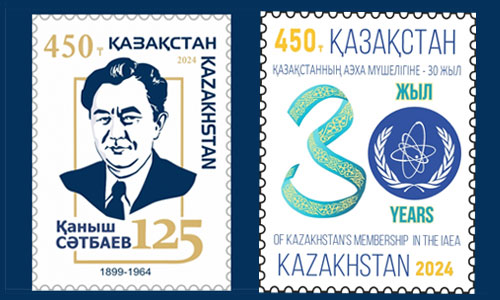This project became a model of early post-Soviet sector unbundling, demonstrating how targeted advisory and restructuring strategies could rapidly realign public services with economic development goals. It also reflected the EBRD’s commitment to structural reform—and the value of seasoned global advisors like Hon. David Butcher in guiding transformation at scale.
— Kazakhstan —
separation. modernization. enterprise.








Unbundling for Progress: Restructuring Postal and Telecom Services in Kazakhstan
“Separating public services from commercial functions is not simply administrative—it’s foundational to building efficient, accountable, and future-ready enterprises.”
— Hon. David Butcher, Telecommunications and ICT Advisor, GG Internationall
Challenge
In 1993, shortly after gaining independence, Kazakhstan faced the urgent challenge of transforming legacy Soviet-era institutions into market-responsive entities. One critical sector in need of structural reform was the combined postal and telecommunications system, which remained a single, monolithic agency with overlapping mandates, inefficient service delivery, and no clear commercial orientation.
The challenge was compounded by outdated infrastructure, limited investment, and a workforce unfamiliar with market-based service standards. The European Bank for Reconstruction and Development (EBRD) recognized that establishing separate, commercially viable entities for postal and telecommunications services was essential to creating a competitive and investor-ready telecommunications environment.
Strategy
The EBRD engaged both internal experts and external advisors—including Hon. David Butcher, former New Zealand Minister and a globally recognized expert in telecommunications corporatization and ICT strategy. Drawing from New Zealand’s pioneering reforms in the 1980s, Mr. Butcher joined the EBRD strategy team to develop a roadmap for institutional unbundling and enterprise formation.
The strategic framework involved:
- Legal and regulatory separation of postal and telecommunications services to eliminate conflicts of interest.
- The creation of two distinct commercial entities with clear mandates, management structures, and financial targets.
- Transitional arrangements for asset allocation, workforce division, and shared infrastructure.
- Recommendations on international partnerships, licensing frameworks, and policy settings to encourage foreign investment and modern service provision.
Hon. David Butcher contributed not only technical expertise but also institutional experience in change management, ensuring that reform proposals were grounded in political and operational feasibility.
Transformation
The EBRD’s strategy—strengthened by the contributions of Hon. David Butcher—laid the groundwork for the successful separation of Kazpost and Kazakhtelecom, two cornerstone entities in Kazakhstan’s public service and communications sectors. The reform enabled:
- The establishment of Kazakhtelecom as a commercially oriented telecommunications operator, later positioned for partial privatization and digital expansion.
- The creation of Kazpost as a stand-alone national postal service, with operational autonomy and a development mandate for rural outreach.
- A new regulatory vision for ICT, enhancing transparency, investment appeal, and long-term competitiveness.